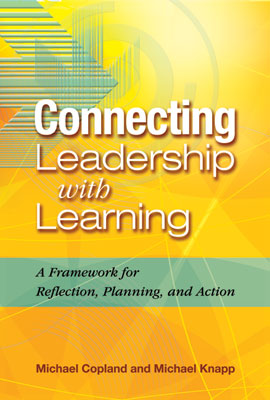Although the public ear is often tuned toward problems in city schools, a closer listen reveals a chorus of possibilities and solutions. These sites lead the band.
Improving Teacher Quality
The March 2004 issue of the Bulletin, the National Association of Secondary School Principals' peer-reviewed journal, includes the article “Recruiting and Retaining ‘Highly Qualified Teachers’ for Hard-to-Staff Schools” by Barnett Berry (www.nassp.org/publications/bulletin/bltn_0304_berry.cfm). Berry synthesizes staffing considerations facing urban school administrators through his thoughtful analysis of policy mandates on teacher quality, common barriers to teacher retention, and ongoing initiatives to attract and sustain highly qualified teachers.
Understanding the motivations for teacher turnover is the first step. The next is stopping the revolving door of teachers entering and exiting city schools. The federal government provides grants to urban teachers seeking to improve their practice through its Title II legislation on Improving Teacher Quality. Find out how to tap the federal coffers atwww.title2.org. And while you're waiting for the check to come in, take advantage of free e-learning opportunities for teacher professional development atwww.teacherquality.us/eLearning.
Creating Safe Urban Schools
Newcomers to this topic will want to get their feet wet at the Center for the Prevention of School Violence's Web site, www.ncdjjdp.org/cpsv. More seasoned searchers might want to check out the Empower Program (www.empowered.org), which works with youth to end the culture of violence. Look under the “Special Features” section of the site and follow the link called “Get the Facts” for an analysis that looks beyond victim and perpetrator to overall cues within a school culture that promote or discourage violence. This site provides gender-targeted coping tools, a glossary of important terms, and samples of Empower's Owning Up violence prevention curriculum. For curriculum specific to creating safe space for gay and lesbian students, the Safe Schools Coalition (www.safeschoolscoalition.org/RG-teachers_k-12.html) provides resources to help educators challenge homophobia in schools.
Building Relationships with the Community
The “Tips” section of the Institute for Responsive Education Web site (www.responsiveeducation.org) has a trove of examples, guidelines, and materials that schools can use to connect with parents and community. Download a variety of parent/family surveys, suggested questions for parent-teacher conferences, and other family involvement and skill-building tools.
To build ties with your diverse school community by providing culturally responsive instruction, take a look at the curriculum materials based on Martin Luther King Jr.'s legacy of racial and social justice on the Web site of the Alonzo Crim Center for Excellence in Urban Education (www.nps.gov/malu/documents/curriculum.htm). And use the Council of Urban Boards of Education's “Telling Your Story” toolkit (www.nsba.org/site/docs/34700/34647.pdf) to let the community know about your successful programs.
Raising Achievement and Expectations
The Council of the Great City Schools (www.cgcs.org), a coalition of 64 urban public school systems, works to promote urban education through legislation, research, media relations, instruction, management, and technology. The Council's Web site has the full text of its recent report Beating the Odds IV: A City-By-City Analysis of Student Performance and Achievement Gaps on State Assessments. Several other reports and studies on successful urban schools are available on request.
The Urban Education Partnership (www.urbanedpartnership.org) works with educators, parents, and community to improve the academic achievement of students in high-needs schools. Check out the site's “Resources” section for links to lesson plans, curricular supports, and content-specific Web sites for kids.
The Bay Area School Reform Collaborative (www.basrc.org) helps schools identify and implement new approaches and strategies. Under the site's “Tools and Resources” section, you'll find the Cycle of Inquiry tool, a continuous, data-based improvement process available for download. Under “Best Practices,” the Collaborative shares data and instructional practices collected from California schools that consistently perform well on state assessments.
For a peek at international urban education initiatives, scroll through Excellence in Cities (www.standards.dfes.gov.uk/sie), the Web site of a standards-based reform program in the United Kingdom.

